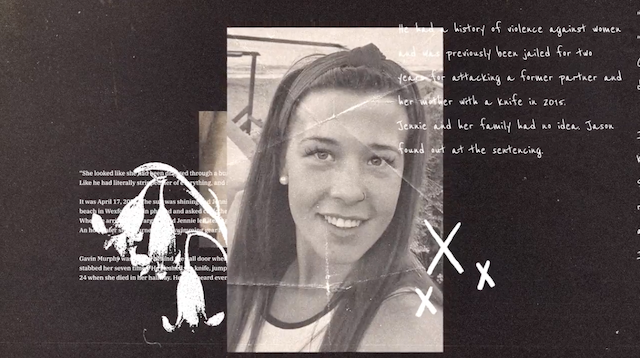A major step forward in tackling domestic violence has been announced the Government has officially approved the drafting of Jennie’s Law, a new law that will create a public Domestic Violence Register of Judgements.
The Register, to be managed by the Courts Service, will publicly name people convicted of serious domestic violence offences against a current or former partner; however, a victim’s consent will be required before their abuser’s name is published.
The law is being introduced by Minister for Justice, Home Affairs and Migration, Jim O’Callaghan, as part of the new Criminal Law (Sexual Offences, Domestic Violence and International Instruments) Bill 2025.
Named in honour of Jennifer Poole

The law is named in memory of Jennifer Poole (known as “Jennie”), a 24‑year‑old who was murdered in 2021 by her partner, who had a prior history of domestic violence convictions; his new partner was not aware of.
After pleading guilty to Jennifer’s murder in 2022, Gavin Murphy received a life sentence.
However, this was not the first time Gavin had been jailed for violence against a partner.
In 2015, he had served two years for attacking a former partner and her mother.
Minister O’Callaghan said the law honours Jennifer’s memory: “Jennie’s Law will allow those convicted of domestic violence against a partner or former partner to be publicly included on a Register of Judgements. I am proud to introduce this in Jennifer’s name.”
He added that the public register will help people identify if someone they’re in a relationship with or considering dating has a history of serious domestic violence convictions.
Once in place, written court judgements following conviction will be published on the Courts Service website.
Each entry will include details of the offence, the offender, and other relevant information. The site will also link to support services for victims of domestic violence.
The New Bill Will Also Make Several Important Changes To Criminal Law

- Sexual consent laws will be strengthened. In future, if someone claims they believed the other person consented to sexual activity, that belief must be objectively reasonable not just a personal assumption. This will apply to both rape and sexual assault cases.
- The term “child pornography” will be replaced in all legislation with “child sexual abuse material”, reflecting the serious nature of the abuse involved.
- The Bill will also toughen laws on human trafficking, expanding the definition of exploitation to include forced marriage, surrogacy, and illegal adoption, and making it a crime to knowingly use the services of a trafficking victim.
- The requirement for dual criminality (that an offence must also be illegal in the country where it occurred) will be removed for serious sexual offences, meaning Irish citizens can be prosecuted in Ireland for crimes like rape or forced marriage committed abroad.
Minister O’Callaghan said these reforms “respond to a range of pressing challenges” in the justice system as Ireland continues to combat domestic, sexual, and gender-based violence.
The General Scheme of the Bill will now go to the Justice Committee for review before being finalised.
The Women’s Aid 24hr National Freephone Helpline is 1800 341 900. For help and support you can also log onto www.womensaid.ie.

